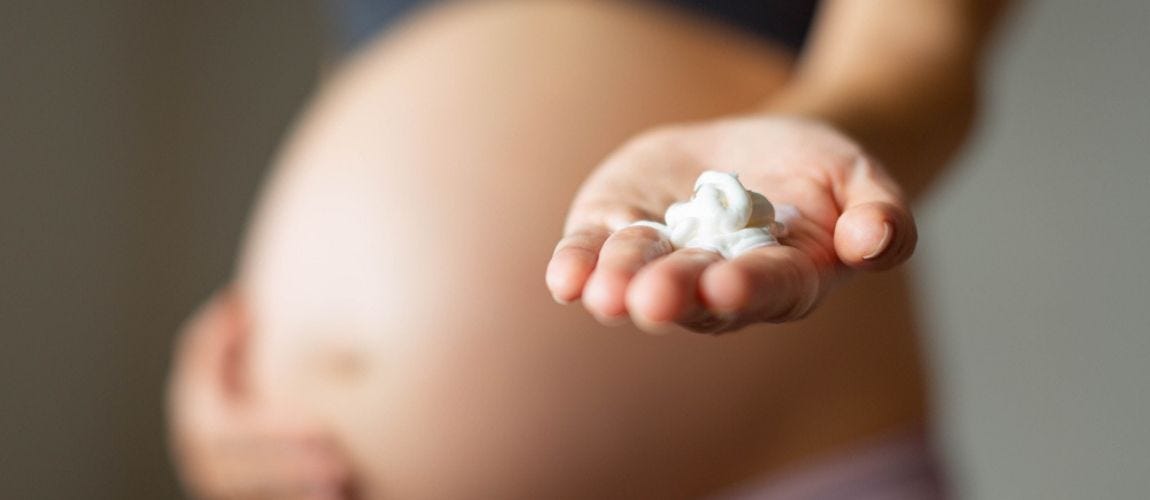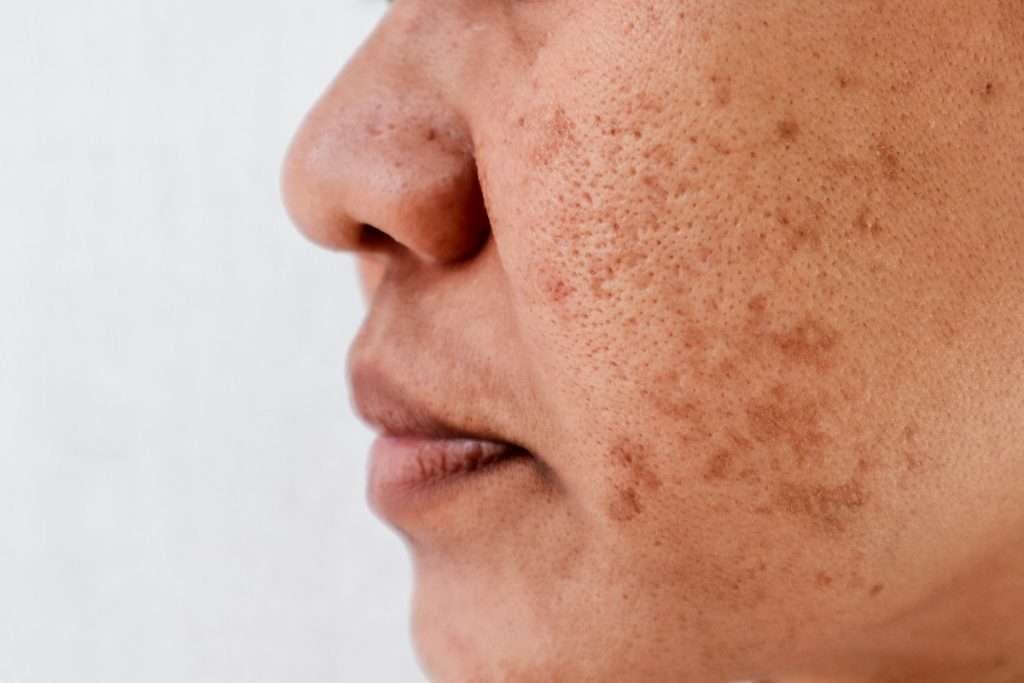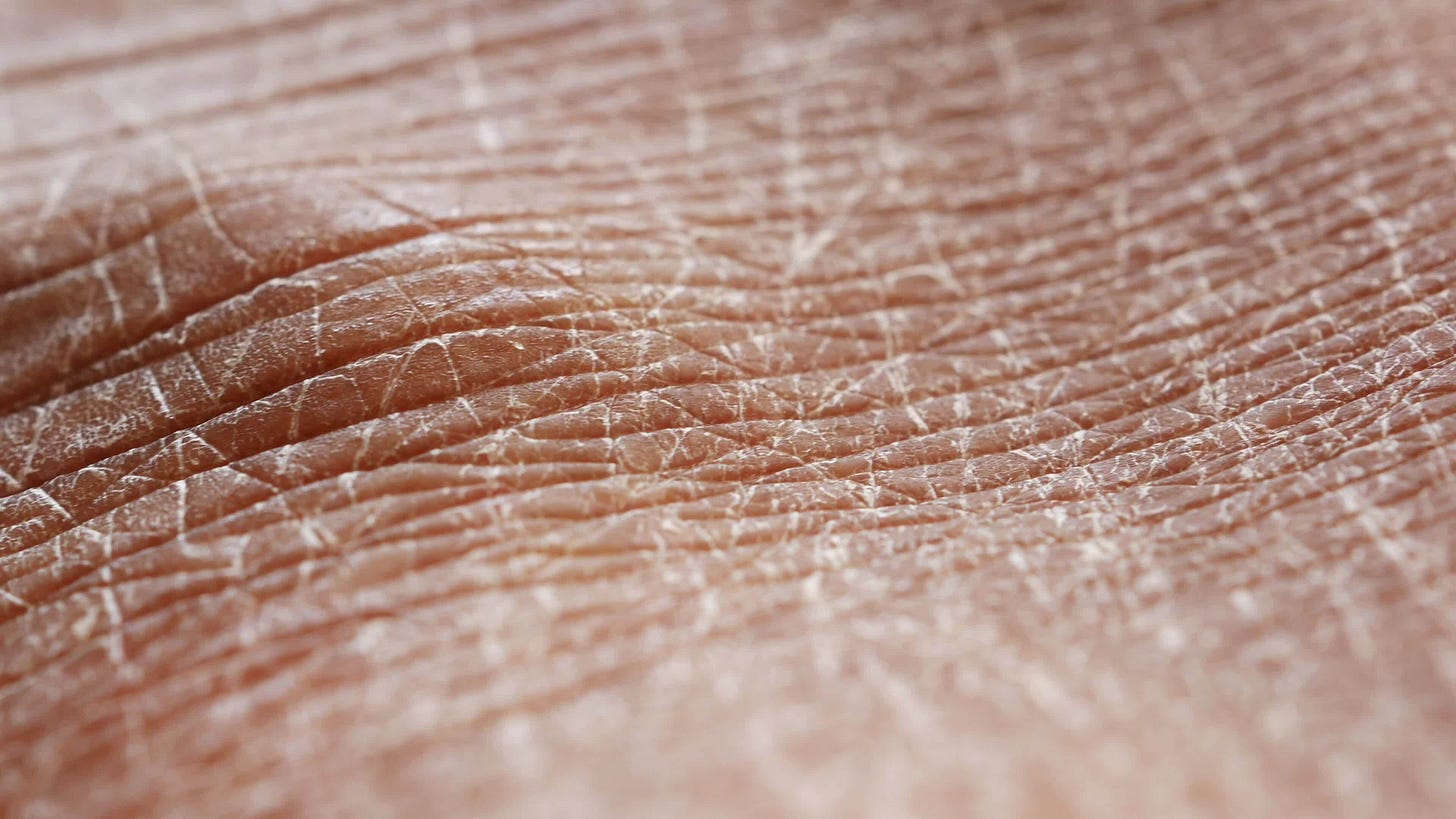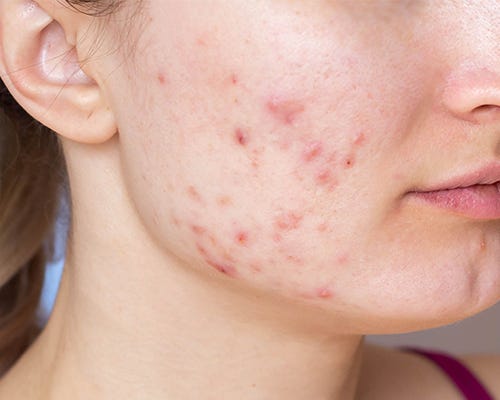Pregnancy Woes: Hormones and Skin Changes
Seem to go Together Like Peas and Carrots, Huh?
Hormones and skin changes seem to go hand in hand.
Pregnancy is no different. Here are some skin issues pregnant women face, what ingredients to look for to SAFELY treat them, and what to avoid.
Melasma
I'm sure you've heard of the glow of a pregnant woman's skin? Unfortunately, not all will be so lucky to experience beautiful, radiant skin during their time. Melasma, coined the "pregnancy mask," commonly develops as melanin production increases and dark patches appear on the face. This condition can last following the birth and can even be made worse if exposed to sunlight.
To combat this issue, wear mineral sunscreen every day, even when indoors. Look for products containing Vitamin C to brighten skin and Niacinamide for treating pigmentation.
Dry Skin
Changes to the skin's elasticity, a compromised skin barrier, and an increase in blood volume to support a growing baby all contribute to the skin feeling very dehydrated. The result? Itchy, dry, tight skin! This is going to be noticeable in the areas where the skin is stretching the most.
How to treat it: Gently exfoliate dry, dead skin cells once or twice weekly. Use thick creams and oils, especially containing cocoa butter, shea butter, or Vitamin E oil. Take oatmeal baths to soothe dry skin.
Note: If itching seems excessive, please see a doctor immediately as that can indicate more serious concerns that have nothing to do with the skin.
Acne
Increased hormonal fluctuations of androgens and progesterone lead to increased oil production. This clogs pores and leads to full on acne breakouts that can range from mild to severe, but typically clear up by the conclusion of the pregnancy.
To treat it, Azelaic Acid is gentle and well-tolerated to use while pregnant and experiencing breakouts. Niacinamide, which I previously mentioned for Melasma, is also great for inflammation.
Stretch Marks
The body is accommodating a new addition, and as a result, collagen and elastic fibers are breaking down under the stress of rapid stretching. The skin undergoes tiny tears in the supporting layers of tissue under the dermis — these become scars. Their appearance and the way they ultimately fade vary from person to person. It all depends on genetics, pre-pregnancy health, diet, age, and if any methods were used to “treat” them along the way.
What can help? Hydration! Cocoa butter, shea butter, and wear a mineral sunscreen when outside. Remember, post baby options include laser treatments and micro-needling if you’re unhappy with their appearance.
Ingredients to Avoid…
Retinoids/Retinol/Retin-A (ex. Tretinoin, Isotretinoin, Differin, etc.): Used for anti-aging and acne treatment. Can cause birth defects and be toxic for the liver due to excessive Vitamin A levels.
Hydroquinone: Aggressive skin lightening ingredient that can have an affect on fetal development.
Chemical Sunscreens: While generally safe, for pregnant women, Oxybenzone and Octinoxate are the "problem ingredients" that act as hormone disrupters.
ANY Chemical Peel Acids: Peels are not recommended during pregnancy due to heightened skin sensitivity and the risk of worsening hyperpigmentation.
Essential Oils: Many oils are added to skincare products (which is why you must be diligent in checking ingredients!). Certain scents are known to be uterine stimulants and should be avoided throughout pregnancy.
For assistance on choosing pregnancy-safe products, fill out my comprehensive skin analysis.








